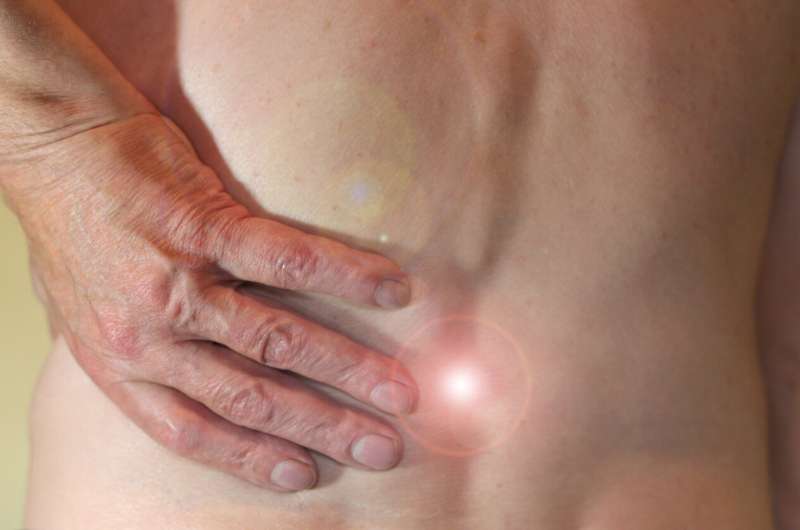Western high-fat diet can cause chronic pain, according to research team
A typical Western high-fat diet can increase the risk of painful disorders common in people with conditions such as diabetes or obesity, according to a groundbreaking paper authored by a team led by The University of Texas Health Science Center at San Antonio, also referred to as UT Health San Antonio.
Moreover, changes in diet may significantly reduce or even reverse pain from conditions causing either inflammatory pain—such as arthritis, trauma or surgery—or neuropathic pain, such as diabetes. The novel finding could help treat chronic-pain patients by simply altering diet or developing drugs that block release of certain fatty acids in the body.
The paper, more than five years in the making, was published in the June edition of the journal Nature Metabolism by a collaborative team of 15 local researchers, headed by first co-authors Jacob T. Boyd, MD, Ph.D., and Peter M. LoCoco, Ph.D., of the Department of Endodontics at UT Health San Antonio.
In all, 11 of the co-authors are from UT Health San Antonio, including seven current or former students of its Graduate School of Biomedical Sciences; three represent the Department of Chemistry at the University of Texas at San Antonio; and one is from the Department of Neurology with the South Texas Veterans Health Care System.
"This study exemplifies team science at its best—multiple scientists and clinicians with complementary expertise working together to make lives better," said Kenneth M. Hargreaves, DDS, Ph.D., professor and chair of the Department of Endodontics at UT Health San Antonio, and senior author of the paper.
Fatty acids and pain
Chronic pain is a major cause of disability around the world. But although fat-reduction often is advised to manage diabetes, auto-immune disorders and cardiovascular diseases, the role of dietary lipids, or fatty acids, in pain conditions has been relatively unknown.
In the new paper, Dr. Boyd and his colleagues used multiple methods in both mice and humans to study the role of polyunsaturated fatty acids in pain conditions. They found that typical Western diets high in omega-6 polyunsaturated fats served as a significant risk factor for both inflammatory and neuropathic pain.
Omega-6 fats, mainly found in foods with vegetable oils, have their benefits. But Western diets associated with obesity are characterized by much-higher levels of those acids in foods from corn chips to onion rings, than healthy omega-3 fats, which are found in fish and sources like flaxseed and walnuts.
Generally, unhealthy foods high in omega-6 fats include processed snacks, fast foods, cakes, and fatty and cured meats, among others.
Reversal of this diet, especially by lowering omega-6 and increasing omega-3 lipids, greatly reduced these pain conditions, the researchers found. Also, the authors demonstrated that skin levels of omega-6 lipids in patients with Type 2 diabetic neuropathic pain were strongly associated with reported pain levels and the need for taking analgesic drugs.
"This paper is a high-profile contribution for a huge unmet translational need as there are no treatments altering the nature of this neurological disease," said José E. Cavazos, MD, Ph.D., professor of neurology, assistant dean and director of the National Institutes of Health-designated South Texas Medical Scientist Training Program at UT Health San Antonio.
In an editorial accompanying the paper, Duke University researchers Aidan McGinnis and Ru-Rong Ji wrote, "This comprehensive and elegant study from Boyd et al. may serve as a foundation for new clinical trials and ultimately provide new avenues for the clinical treatment of neuropathies."
- Karlston
-

 1
1



Recommended Comments
There are no comments to display.
Join the conversation
You can post now and register later. If you have an account, sign in now to post with your account.
Note: Your post will require moderator approval before it will be visible.